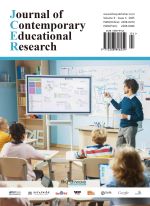Abstract
In the modern higher education music curriculum system, the teacher-student interaction mode is a key factor affecting the effectiveness of piano teaching. However, the current teacher-student interaction mode in piano teaching still has limitations, such as one-way transmission and a lack of personalized feedback. Based on constructivist learning theory and social interaction theory, combined with information technology, this paper explores the optimization strategy of interaction mode in the piano teaching process of normal universities. This study adopts classroom observation and interview methods to analyze the impact of different interaction modes on students’ piano learning effectiveness, learning engagement, and autonomous learning ability. The research results show that the constructivist interactive teaching mode supported by information technology can significantly enhance students’ interest in learning and playing skills, optimize the classroom teaching atmosphere, and promote the improvement of their comprehensive literacy.
References
Piaget J, 1950, The Psychology of Intelligence, Routledge, New York.
Piaget J, 1970, Science of Education and the Psychology of the Child, Orion Press, UK.
Piaget J, 1977, The Development of Thought: Equilibration of Cognitive Structures, Viking Press, New York.
Vygotsky LS, 1978, Mind in Society: The Development of Higher Psychological Processes, Harvard University Press, Cambridge.
Vygotsky LS, 1986, Thought and Language, MIT Press, Cambridge.
Vygotsky LS, 1987, The Collected Works of L. S. Vygotsky, Volume 1: Problems of General Psychology (Original work published 1934), Springer, New York.
Berger PL, Luckmann T, 1966, The Social Construction of Reality: A Treatise in the Sociology of Knowledge, Anchor Books, New York.
Bauer WI, 2014, Music Learning Today: Digital Pedagogy for Creating, Performing, and Responding to Music, Oxford University Press, Oxford.
Tarusha F, Bushi J, 2024, The Role of Classroom Observation, its Impact on Improving Teacher’s Teaching Practices. European Journal of Theoretical and Applied Sciences, 2(2): 718–723.
Al-Samarraie H, Hurmuzan S, 2018, A Review of Brainstorming Techniques in Higher Education. Thinking Skills and Creativity, 27: 78–91.
Saleem A, Kausar H, Deeba F, 2021, Social Constructivism: A New Paradigm in Teaching and Learning Environment. Perennial Journal of History, 2(2): 403–421.
Xiong X, Noordin ZM, 2024, The Effect and Relationship on Learning Strategies of Collective Piano Classes in the Context of Preschool Education. International Journal of Academic Research in Business and Social Sciences, 14(6): 21894.
Li W, 2022, Analysis of Piano Performance Characteristics by Deep Learning and Artificial Intelligence and its Application in Piano Teaching. Frontiers in Psychology, 12: 751406.
Ozdamar FD, Yavuz-Konokman G, 2024, Piano Teaching within the Framework of the Flipped Classroom Model: Planning, Implementation, and Evaluation. International Journal of Music Education, OnlineFirst.
